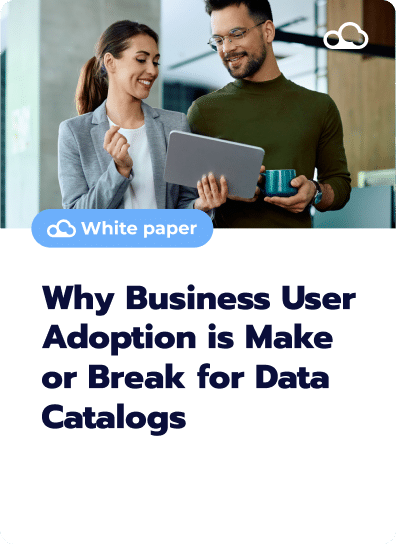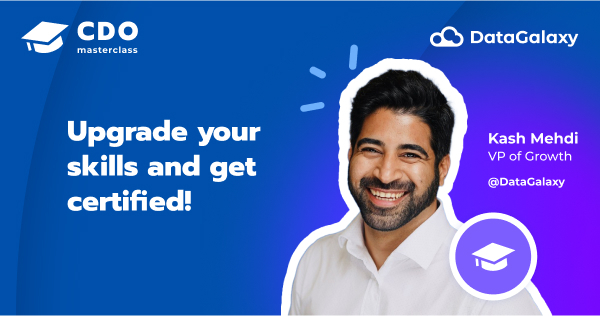Discover a new agile approach to data governance to support community-driven processes and enhance data literacy for all users.
The decades-old waterfall approach to data governance no longer meets the requirements of our dynamic, fast-changing world.
It's time to face it: The rigid top-down model of data governance no longer meets the needs of our era, a time when things are continuously shifting and being reinvented.
Big data is now the norm, but it’s the approach to data management that will make or break a data governance program. It's now necessary to inject more agility into our governance processes for enhanced collaboration.
Data governance is not an exact science and perhaps will never be.
Organizational processes are constantly evolving to meet changing requirements, needs, and times. Each organization is unique and needs to find out what works for them in their particular sector of activity. There is no one-size-fits-all solution.
The traditional model of data governance creates a single solution intended for universal application. It does not take into consideration the collaborative aspect of processes.
In this model, a group of business leaders decides on the specifications of the project. For example, it's important to decide which data needs to be cataloged and by whom, and operational teams are expected to simply execute orders.
However, this approach has many limitations. First, the specifications are rarely reviewed once the project has been launched. Second, more often than not, they do not correspond to field reality.
The result is that operational teams do not understand the approach or its value, and nothing gets done.
Encouraging community-driven processes
Incorporating agility into data governance means fostering a culture where community-driven processes take center stage.
This approach shifts the responsibility from a small group of decision-makers to a broader spectrum of stakeholders. By involving everyone who interacts with the data, from analysts and IT professionals to end users, we ensure that the governance framework is relevant, practical, and used.
CDO Masterclass
Upgrade your data leadershipin just 3 days
Join DataGalaxy’s CDO Masterclass to gain actionable strategies, learn from global leaders like Airbus and LVMH, and earn an industry-recognized certification. This immersive program equips data professionals to drive impactful, data-powered transformations.
This collective input helps to continuously refine and adapt the governance structures, making them more resilient to the rapidly changing data landscape.
This democratization of data management also promotes a sense of ownership and accountability among users, leading to more engaged and proactive participation in data governance activities.
Agility in data governance also supports the critical goal of enhancing data literacy across the organization.
As data becomes an integral part of decision-making processes, it is imperative that all users, regardless of their technical background, are empowered to understand and utilize data effectively.
Agile methodologies encourage ongoing training and education, ensuring that users are not only aware of data governance policies but also comprehend the reasoning behind them.
This understanding fosters a more data-literate workforce that can navigate and contribute to the governance processes confidently, ultimately leading to better data quality and more informed decision-making.
Leveraging technology for agility
Technology plays a crucial role in enabling agile data governance.
Modern tools and platforms that support real-time data processing, collaborative workflows, and dynamic reporting are essential for maintaining agility.
These technologies allow organizations to quickly respond to changes, integrate feedback from users, and update governance protocols as needed. Automated data cataloging, machine learning algorithms for data quality checks, and interactive dashboards are just a few examples of how technology can facilitate agile practices.
By leveraging these tools, organizations can ensure that their data governance framework remains flexible and efficient, even as new data sources and business requirements emerge.
Agility in data governance is no longer a luxury but a necessity in today's fast-paced, data-driven world. The traditional top-down approach is ill-suited to meet the dynamic needs of modern organizations.
By embracing agile methodologies, we can foster community-driven processes, enhance data literacy, and leverage cutting-edge technology to create a more adaptable and effective data governance framework.
This transformation not only addresses the shortcomings of the old model but also sets the stage for a more collaborative and responsive approach to managing data.
Ultimately, the success of a data governance program hinges on its ability to evolve and meet the ever-changing demands of the digital age.
Fueling smarter decisions for
200+ industry powerhouses.










